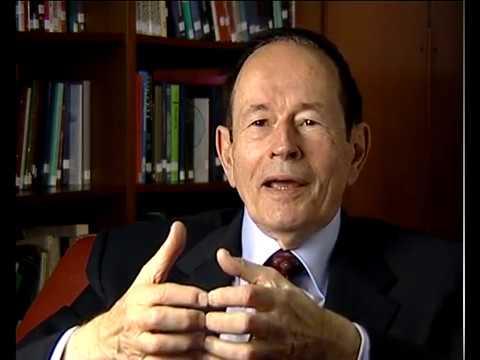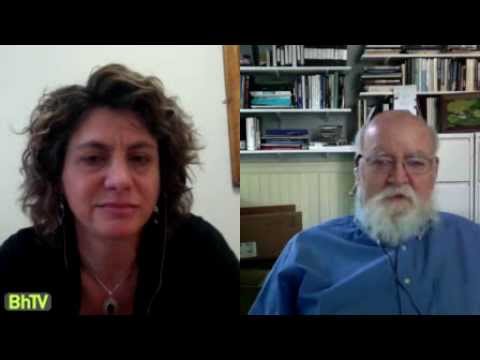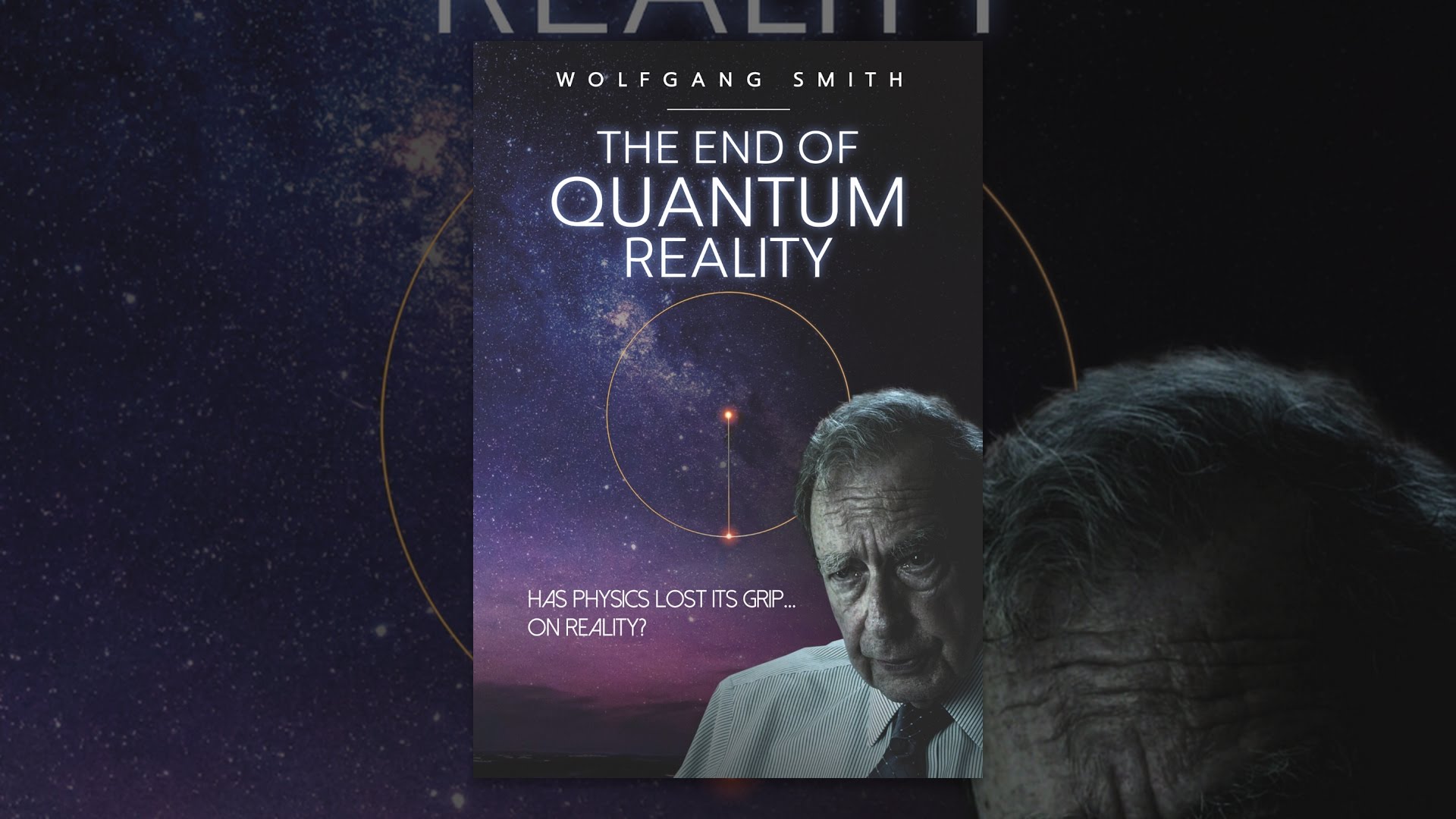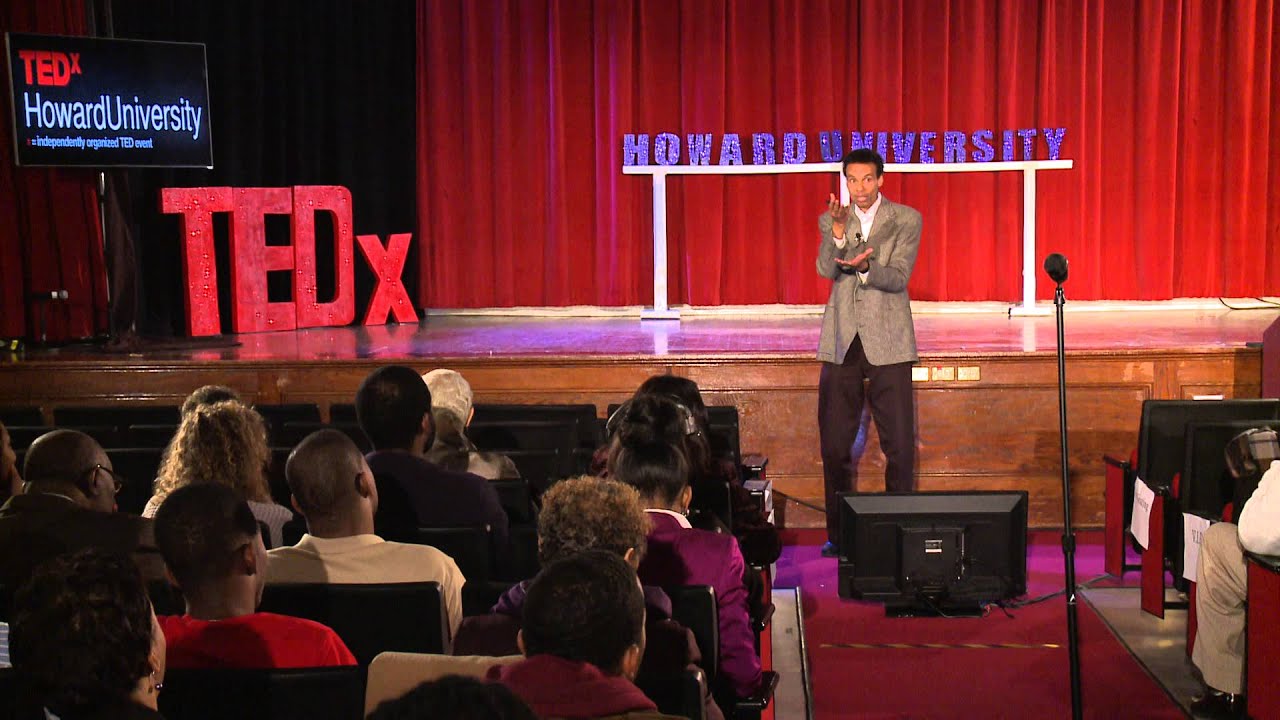Web of Stories – Life Stories of Remarkable People
To listen to more of Gerald Edelman’s stories, go to the playlist:
https://www.youtube.com/playlist?list=PLVV0r6CmEsFwfn8yTKeVwA9CcyjZphj9f
Biologist Gerald Edelman (1929-2014) was born in America. His early work concentrated on the study of immunology and he was jointly awarded the Nobel Prize in Physiology or Medicine in 1972 for his work leading to the understanding of the antibody’s chemical structure. [Listeners: Ralph J Greenspan]
TRANSCRIPT: [RJG] Does the notion of how the brain processes the world and how we acquire knowledge and certainty then run afoul of the sort of everyday necessity of working in the world and of dealing in the scientific community?
Well, those are three different things, aren’t they? First of all, working in the world, for sure most people work in what you might call the common sense mode, right? They don’t worry about quarks when they go to work. They don’t consider the second law of thermodynamics as an axiom of impotence or anything of the sort. And sensibly so. They deal mostly in fact with other human beings, right? Speak about culture and co-evolution. In… in the practice of science, coming back to our issue of style, it does seem to me that style is in some degree field dependent. That if you try to apply this style that you apply say a high-energy physicist to say genetics, your field, you would not really be equipped to get very far. And the physicist might say in return, ‘Neither would you get very far if I used your kind of approach which is by my standards quite sloppy.’ But I believe there isn’t the contradiction. I believe that there’s something interesting about it, though, which I think I’ve said before – namely that you proceed from ambiguity to clarity, not the other way around. And if you try to say, ‘Oh no, we’ll be clear right from the beginning’, just like mathematics might seem to be, you get into a little bit of trouble. And the trouble has to do with the unknown; the fact that… and that may be worth pursuing; I never thought of it this way. But in Darwinian terms the future environment is unknown, isn’t it? And the mutation and the set and ensemble of structures you have selected are a kind of shake against a future which you can’t even really predict because it’s not even cognitive.
Now, what happened with cognition is you added to that a power of prediction though consciousness of a certain kind. We were talking about music; I’ll give you the example. If someone says what’s the function of consciousness since… maybe I haven’t said this, but it takes maybe up to 400 milliseconds before you formulate a true conscious image or whatever. The… the function of consciousness to me is simply a little bit like this. Supposing you were a musician and you were practicing for a concerto – let’s see Beethoven’s Third with an orchestra – and you take a particular sequence of notes which you haven’t seen before and consciously learn them until they go… become unconscious, procedural memory, and then you rattle them right off; and then you do the same with another phrase, and then you hook the two together again consciously. Now you go into concert; the last thing you want to do is think of your fingers moving up and down, right? But then supposing the conductor lags the beat… oh, boy. You get an alert and say, ‘I’d better do something about this’ – that is what consciousness is about. It’s not for the immediacy of moving your fingers at seven hertz per second; it’s more the fact of projecting what compensation has to be done if things deviate from expectation.
So it is interesting to think in a Darwinian mode about Darwin’s natural selection as being a ruthless but nonetheless most remarkable way of saving value if you will; and, at the same time, think of what happened that evolution made these selectional systems somatic ones like the immune system and the brain, to deal with conditions that could not be predictive during natural selection; for example, it could hardly be that natural selection could define an antibody combining site in detail for a molecule that never existed before, any more than evolution could deal with what happens in cognition when you think up, say, a James Joyce novel. But to me I think it’s all of a piece – that… that in effect it has to be said that the physicist precedes the physics; that in effect it doesn’t go the other way around; you just can’t turn a crank and get new ideas. The way new ideas appear is in some degree mysterious but certainly never super-precise. Now people might argue about that, I’m not sure, but it seems to me there is a cogent picture here, and it’s what I call a picture that supports a notion I’ll call – for the moment, I’ve never used it before – lenient epistemology. Namely…
Visit https://www.webofstories.com/play/gerald.edelman/70 to read the remaining part of the transcript and to view more of Gerald Edelman’s inspiring thoughts and life stories.
Source



